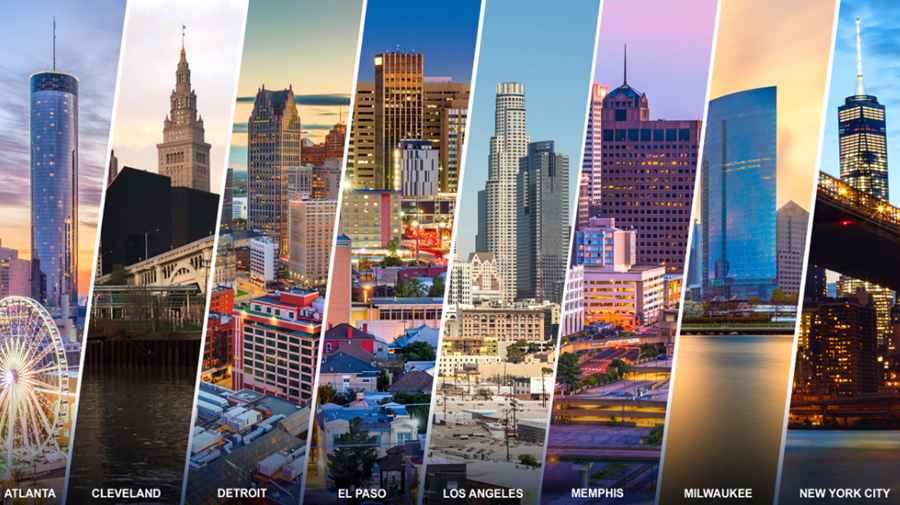Microsoft Expands Airband Rural Initiative to Big Cities
Signals it is needed to close racial equity as well as digital divide
The smarter way to stay on top of broadcasting and cable industry. Sign up below
You are now subscribed
Your newsletter sign-up was successful
Even as Microsoft is trying to convince the FCC to expand the broadcast band channels it wants to use for broadband, it has announced an expansion of its Airband initiative, which has been targeted to closing the rural digital divide to eight of the largest U.S. cities.
The computer giant said they are among those facing the largest digital divides for Black, African American, Latinx, and Hispanic communities, essentially tying the Airband initiative to closing the racial inequity divide as part of its Racial Equity Initiative.
The cities are Atlanta, Detroit, Cleveland, El Paso, Los Angeles, Memphis, Milwaukee, and New York.

For example, Microsoft is working with Starry Inc. in Los Angeles to provide "affordable broadband" to four affordable housing communities.
It is providing free and low-cost refurbished devices to racial and ethnic minorities in all those cities.
And if the link to its FCC efforts were not clear, Microsoft tied the announcement to what it said is updated research showing that 120 million-plus people still don't use the internet at "broadband speeds,"* almost 10 times the 14.5 million figure the FCC said don't have access to broadband.
The company is also pushing for better broadband mapping for the billions in subsidy funds already allocated by Congress and as much as $100 billion more in President Biden's American Jobs Plan package, as well as a technology neutral approach that could include subsidizing fiber, satellite and a number of fixed wireless approaches. It also wants any of those to have to meet an updated high-speed definition from the FCC. It also suggests that preference be given to wireless solutions--like Airband. "History has taught us that technologies are deployed at different speeds, with wireless technologies like mobile phones seeing faster deployment than wireline technologies," said Vickie Robinson, GM of the Airband initiative.
Microsoft said these city pilot programs won't solve the problem by themselves. "We need systemic change to solve a systemic problem and that requires the federal and state governments to act to permanently address the digital divide," Robinson said in a blog post Tuesday (June 2). "That’s why we’re using our voice and resources to push for policy change and funding at the federal, state and local levels. Only by working with stakeholders at all levels – federal, state and local agencies; corporate, philanthropic and nonprofit partners; and community leaders – will we be able to close the digital divide.
Microsoft's Airband initiative launched in 2017, but broadcasters pushing back against the computer company's efforts to expand service closer to the channels broadcasters use call it failed science fair project.
*The FCC's high-speed definition of 25 Mbps download, 3 Mbps upload.
The smarter way to stay on top of broadcasting and cable industry. Sign up below
Contributing editor John Eggerton has been an editor and/or writer on media regulation, legislation and policy for over four decades, including covering the FCC, FTC, Congress, the major media trade associations, and the federal courts. In addition to Multichannel News and Broadcasting + Cable, his work has appeared in Radio World, TV Technology, TV Fax, This Week in Consumer Electronics, Variety and the Encyclopedia Britannica.

